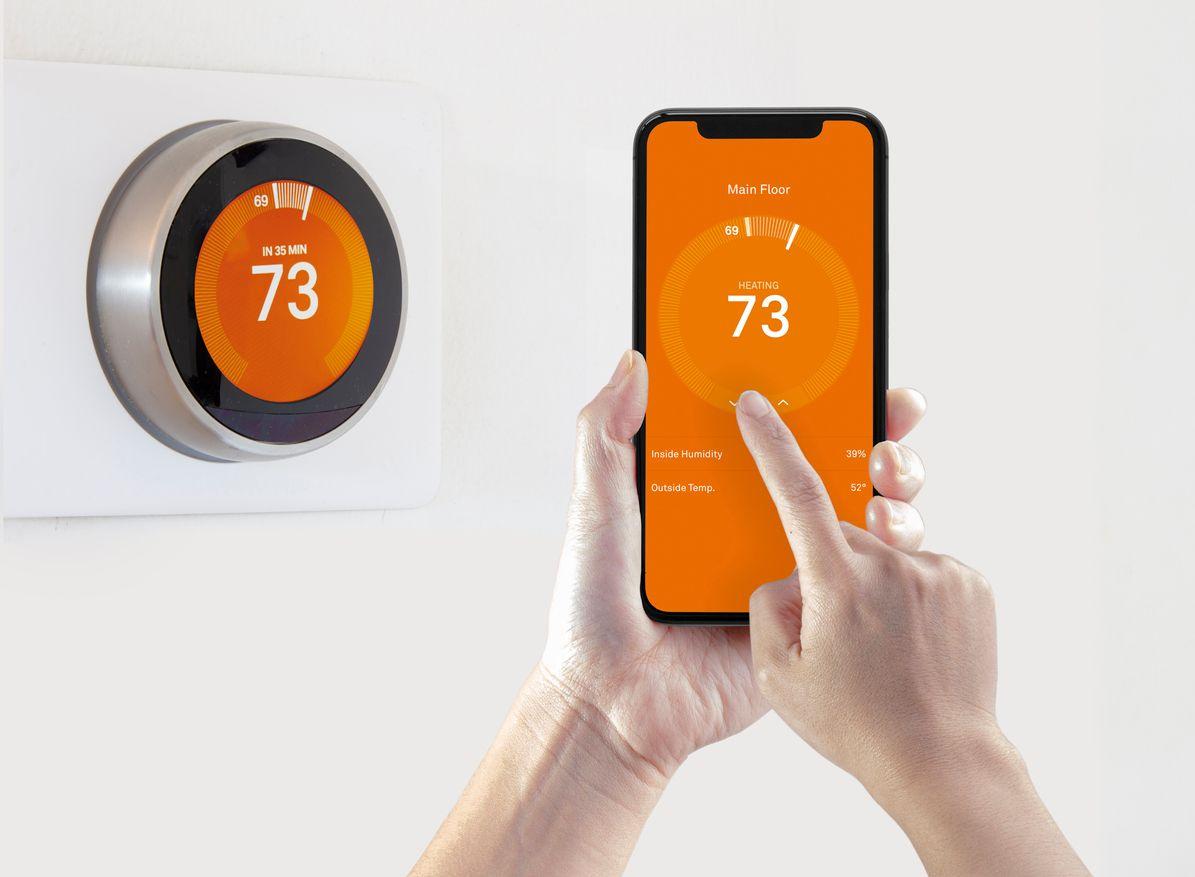How Much Does It Cost to Replace a Thermostat?

Often referred to as the “brain” of an HVAC system, your thermostat plays a crucial role in regulating your home’s temperature by instructing your heating and cooling unit when to turn on and off. When the thermostat stops working properly, it can significantly impact the entire HVAC system.
Thermostats generally last about 10-15 years on average. If your thermostat is within that age range or is malfunctioning, it might be time to consider upgrading to a new, more energy-efficient unit. Keep reading as HVAC.com discusses the factors that influence the price of replacing a thermostat and answers the question – how much does it cost to replace a thermostat in your home?
The Average Cost to Install a New Thermostat
The average cost of a new thermostat, including installation, ranges in price from $50 to $500 or more based on several factors including the type of thermostat, labor costs, the complexity of the installation, and more.
Factors that Determine the Cost of a Thermostat
If it’s been a while since your last thermostat upgrade, you might be pleasantly surprised by the tech-savvy options available now. Some of the most significant factors that influence the price of a new thermostat include:
Thermostat Type
The 4 most popular thermostat types include:
- Manual thermostat. Manual thermostats are budget-friendly but have fewer features. As the name implies, you need to manually adjust the temperature or switch between “heat” and “cool.” If you’re cost-conscious and don’t mind making adjustments by hand, a manual thermostat is a suitable choice.
- Programmable thermostat. Programmable thermostats provide an added layer of convenience by allowing you to pre-set temperatures based on the time of day and day of the week. This feature saves money on monthly energy costs by ensuring your home is not heated or cooled when unoccupied.
- Wi-Fi thermostat. If you do almost everything from your smartphone, a Wi-Fi thermostat may be exactly what you’re looking for. Wi-Fi thermostats take the convenience to another level by allowing you to adjust the temperature from anywhere. This is incredibly helpful if you forget to lower or raise the temperature before leaving for work or vacation.
- Smart thermostat. Smart thermostats can do everything the previous three thermostat types can and much more. Smart thermostats can learn your temperature preferences over time and make adjustments automatically. Some smart units also use geofencing capabilities by using your smartphone to adjust the temperature based on your proximity. Many smart thermostats provide monthly energy reports and signal alerts for needed repairs or maintenance.
Overall, smart features including Wi-Fi capabilities, geofencing, and compatibility with voice assistants can add about 20-30% to the cost of your thermostat installation project.
Thermostat Make and Model
The thermostat’s make and model can greatly influence the price. Top-of-the-line brands may increase the price, but they also offer additional features and more reliable performance.
Professional Installation
Hiring a professional HVAC contractor for thermostat installation can increase the price by about 10-20%. However, you’ll gain the peace of mind of knowing your thermostat was installed correctly and in the right location. A qualified HVAC contractor will also ensure the type of thermostat you buy is compatible with your existing HVAC system.
The Bottom Line on Thermostat Installation
Buying a new thermostat ultimately depends on your personal preferences and budget. While some homeowners may opt for a cost-effective manual thermostat, others may prefer the convenience and advanced features offered by programmable, Wi-Fi, or smart thermostats. Investing in a quality thermostat ensures optimal performance and long-term energy savings. Contact an HVAC professional to ensure your chosen thermostat meets your specific needs.